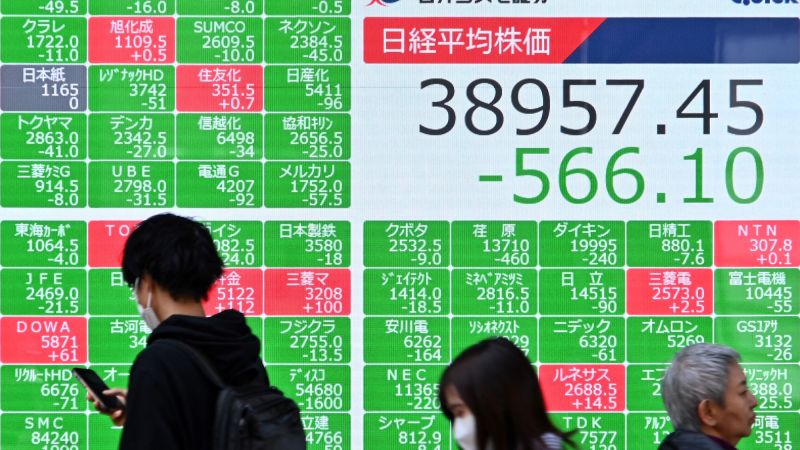Gold prices rose on Monday due to rising geopolitical tensions in the Middle East following an unprecedented attack by Iran on Israel. This led to increased demand for safe haven assets, with spot gold reaching $2,358 per ounce, up 0.6%. Japan’s Nikkei 225 and South Korea’s Kospi fell more than 1%, while Hong Kong’s Hang Seng Index dropped 0.8%. However, China’s Shanghai Composite Index rose 1.2%. US gold futures also increased by 0.1% on Monday, bringing their total rise for the year to 15%.
Oil prices had settled higher on Friday in anticipation of retaliatory action from Iran, reaching their highest levels since October. However, they retreated slightly during Asian trading hours on Monday as the attack by Iran on Israel caused only minor damage, according to Israeli military officials. Despite this, US crude futures have risen 6.7% this year, while Brent crude, the global oil benchmark, has surged more than 10%. Analysts from ANZ noted that commodity markets were on edge due to heightened tensions in the Middle East and warned of possible disruptions to oil supply following Iran’s attack on Israel.
The attack by Iran on Israel has raised concerns about potential disruptions to oil supply and has heightened the geopolitical risk in the region. Iran’s attack followed a suspected Israeli strike on an Iranian diplomatic complex in Syria earlier in the month. The Middle East is now facing increased uncertainty as both sides are on edge, with the extent of the risk depending on the reaction of Israel’s government. The attack has caused commodity markets to remain on edge, with analysts closely monitoring the situation for any further developments.
Before Iran’s attack on Israel, US stocks ended Friday sharply lower as Wall Street worried about escalating tensions in the Middle East. However, US futures were cautiously higher following statements from President Joe Biden and his national security team indicating that the US will not participate in any counter-strike against Iran. Dow futures rose 0.2% in Asian hours on Monday, while S&P 500 and Nasdaq futures were up 0.2% and 0.3% respectively. The situation in the Middle East has put markets on edge, with investors closely monitoring the developments and their potential impact on global financial markets.
Overall, the rising tensions in the Middle East following Iran’s attack on Israel have led to increased demand for safe haven assets such as gold, pushing prices higher. While Asian stocks mostly fell, China’s Shanghai Composite Index saw a 1.2% increase. Oil prices also surged before retreating slightly, with US crude futures up 6.7% for the year and Brent crude rising more than 10%. The situation in the Middle East remains volatile, with concerns about potential disruptions to oil supply and the reaction of Israel’s government. Investors are closely watching the developments and their impact on global markets, as uncertainty in the region persists.


